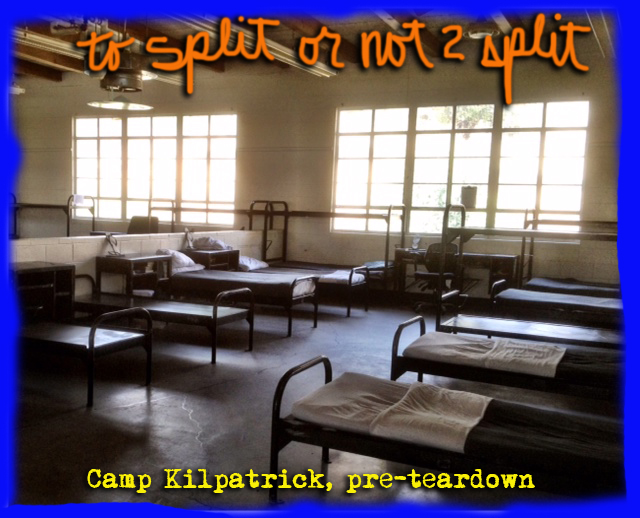The idea of splitting LA County’s large and complicated probation department into two agencies—one overseeing adults, the other juveniles—has been talked about for years, but never seriously. The proposed split had many fans, but up until recently, advocates say, the funding streams for the adults and kids were too interdependent to easily separate.
Yet, with Monday’s departure of probation chief Jerry Powers, plus the advent of newer sources of funding like AB 109-related dollars and other distinct income streams—together with a more urgent emphasis on rehabilitation not punishment for kids in the county’s care—the LA County Board of Supervisors appear poised to take a new look at the possibility of making two agencies out of one.
The LA Times’ Abby Sewell has a story that provides a good initial rundown on issue that will be an important topic of conversation among the supes in the months to come—thus we didn’t want you to miss it.
(The possibility of splitting probation is, of course, a matter that we will be tracking closely as it unfolds.)
Here are some clips from Sewell’s story:
The idea has been floated for years by advocates who say the nation’s largest probation system is too unwieldy to address the different needs of the adult and juvenile populations. Opponents say breaking up the department, which has an annual budget of more than $800 million, would be too disruptive and costly, and the proposal has never gained a serious foothold with the Board of Supervisors.
But with the impending departure of the agency’s third chief in five years, advocates are once again pushing for restructuring.
County Supervisor Mark Ridley-Thomas, who is part of a new, more liberal board majority ushered in by the 2014 elections, said he plans to ask for a formal study of the feasibility of separating the adult and juvenile probation operations.
“It’s my thinking that the time has come,” Ridley-Thomas said in an interview. “I do believe very strongly that the probation department is in need of substantial reform.”
[SNIP]
The probation department tracks about 43,000 adult offenders and is responsible for 9,000 juveniles, both in and out of custody. It runs three juvenile halls, primarily for youths awaiting trial, and 14 camps for those ordered to longer stays in a locked setting; it also contracts with group homes and substance abuse treatment facilities to house other youngsters.
Although adults make up most of the population supervised by the department, three times as many staff members are assigned to dealing with minors as to the adult probationers, and the juvenile system has been in many ways the most problematic. The department emerged in the spring from six years of federal monitoring of conditions in the juvenile lock-ups, prompted by repeated reports of abuse and poor conditions.
[SNIP]
Advocates for a less-punitive approach support the project and acknowledge progress in lowering the population of juveniles in lock-up, but they say the pace of reform has been too slow.
Kim McGill, an organizer with Youth Justice Coalition, an advocacy group for youths who have been in the criminal justice system, said her group is “100% in favor” of having a separate juvenile agency. She wants it housed in an office of youth development that would also run a network of youth community centers, job training and recreational programs.
In the current department, she said many probation workers come from a criminal justice background and take a more punitive approach to kids. “Punishment doesn’t really work for anyone, but especially for young people,” she said.
The proposal has drawn some initial skepticism within the department.
Ralph Miller, president of the probation officers’ union — which was at odds with Powers — said he thought such a split was unnecessary and would only result in “competing budgets and just fracturing things.”
“It would be too disruptive,” he said. “We’ve been through enough stuff…. You properly train and equip and support people and the rest will kind of work out by itself.”
[SNIP]
San Francisco’s chief of juvenile probation, Allen Nance, said the state’s complex requirements make it difficult for a single agency to both handle young people and keep up with changes in the adult criminal justice system. For juvenile offenders, there are educational requirements, standards for camps and halls and steps to place young people in group or foster homes if they can’t return to their families.
“I can’t imagine how, in a medium to large county, a single chief probation officer can keep track of it all,” Nance said…


Worst idea ever!